Storing your food correctly can make all the difference in terms of freshness and taste.
The way you store food may seem like a minor detail, but it can have a big impact on how long your food will stay fresh and safe to eat. Not only that, but improper food storage can lead to issues with pests.
To ensure that your food stays as fresh as possible, here are some tips for storing common foods you might have in your survival stockpile.
Rice
Rice is another pantry staple that needs proper storage if you want it to stay fresh longer. To make sure your rice lasts as long as possible, keep it in a sealed oxygen-free container with oxygen absorbers.
This will help prevent mold growth while also keeping your rice flavorful for up to six months or more.
Nuts
Nuts are high in fat, which means they are highly susceptible to oxidation from air exposure. This means that when exposed to oxygen for too long, the fats in the nut will break down and start to smell bad or taste bitter.
The same thing happens when nuts absorb moisture from the air—they become soft and mushy instead of crunchy and delicious.
To avoid this, store nuts in the refrigerator and away from strong-smelling foods like onions, as nuts tend to absorb those odors.
Baking Soda
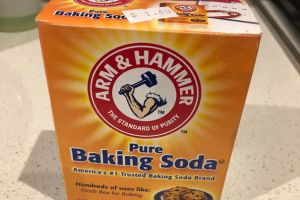 It is important to store baking soda in an airtight container with a lid because it absorbs odors from its environment. This is why it is also often used as a deodorizer.
It is important to store baking soda in an airtight container with a lid because it absorbs odors from its environment. This is why it is also often used as a deodorizer.
If left open, baking soda will lose its potency over time and not work as well when baking or cleaning.
Cornmeal
Cornmeal tends to spoil quickly if left in its original packaging. This is because cornmeal absorbs moisture from the air easily, which can cause it to become clumpy and stale.
To prevent this from happening, store cornmeal away from any sources of heat or light. This will keep it fresher for longer periods of time.
Salt
Store salt in a sealed glass container or sealed bag away from heat sources such as ovens and dishwashers. Salt can absorb moisture, which can make it clump together and render it unusable.
Related: How to Stop Migraines with Salt
It’s also important to note that salt is a preservative and can last almost indefinitely if stored properly.
Crackers
Crackers are vulnerable to becoming stale if left in their original packaging too long because they have no protective barrier against moisture or humidity levels present outdoors.
To keep them fresh for longer periods of time, consider dry canning. This method will extend the shelf life of your crackers and keep them fresh (not stale) for long periods of time.
Cereal
 Cereal can become stale quickly if stored in its original packaging, which usually comes in paper or plastic bags.
Cereal can become stale quickly if stored in its original packaging, which usually comes in paper or plastic bags.
Instead of leaving the cereal exposed to air, transfer it into a container that has a good seal on the lid. This way the moisture cannot get inside and make it soggy.
Putting cereal into mason jars is one good option, but you can also vacuum seal it to help it stay fresh for longer. Canning is another option for cereal.
Dry Beans
Dry beans don’t last very long when stored in their original packaging because moisture can get inside and cause them to spoil quickly.
Related: Meal in a Bag: Chili with Beef and Beans
To maximize shelf life, store dry beans in an airtight container or jar. Using an oxygen absorber is a great way to store dry beans so they stay fresh for years on end.
Powdered Eggs
Like powdered milk, powdered eggs should be transferred into an airtight container with an oxygen absorber before storing them in the freezer or refrigerator.
The powder is highly susceptible to picking up outside odors from other food items, so keeping it tightly sealed will help ensure that your eggs stay fresh-tasting for longer periods of time.
Finally, dry canning is another good choice for powdered eggs.
Coffee
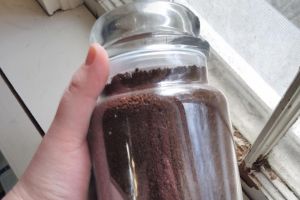 Coffee beans should never be stored in their original packaging because they need to stay away from light, heat, and moisture in order to retain their flavor and aroma.
Coffee beans should never be stored in their original packaging because they need to stay away from light, heat, and moisture in order to retain their flavor and aroma.
Always store your coffee beans in an opaque, airtight container at room temperature so that they remain fresh.
Another good option for storing coffee is to vacuum seal it. It can also be frozen for long term use, though it may lose some of its flavor and potency over time. Use it within six months for the best results.
Sugar
Sugar has a tendency to absorb moisture as well, so avoid storing it in its original package for too long of a period of time.
Storage containers for sugar should be airtight and opaque. Good choices include Mylar bags, food-grade plastic buckets, and polyethylene bags.
Oatmeal
Oats are another food item that should never be stored in their original packaging; instead, transfer them into an airtight container with a tight-fitting lid to keep them fresh for extended periods of time.
Oats have a naturally long shelf life, but you can extend it by several years if you add an oxygen absorber.
Also, make sure to store oats away from any sources of heat or light—this will help them stay fresher longer.
Flour
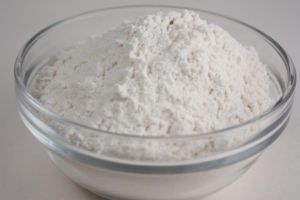 Flour can absorb moisture easily if left in its original package too long.
Flour can absorb moisture easily if left in its original package too long.
To avoid this problem, place flour into a tightly closed bin and store it away from sources of heat or light.
Related: A Forgotten Wild Edible: Pine Bark Flour
You can also dry can flour. This method provides shelf life for at least 5 years, depending on how cool and dry your storage space is during that time.
Bread, Pasta, And Other Grains
Breads, pastas, and grains should not be stored in their original packaging because it traps moisture which can lead to mold growth over time.
Instead, these items should be transferred to sealed glass jars or resealable plastic bags that are labeled clearly so you know what’s inside. Pasta, grain, and bread can also be dry canned.
Baking Mixes
Baking mixes are convenient, but they can lose their potency over time if stored improperly. To maximize the shelf life of your baking mix, put it in a mason jar or sealed Mylar bag.
Put a desiccant on top to control moisture, then store the container in a cool spot away from light.
This will help keep the ingredients from separating or clumping together, so they’re ready when you need them.
Dried Fruit
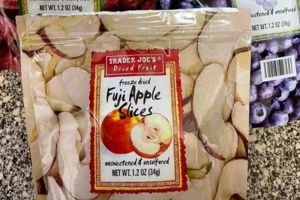 Dried fruit is a nutritious snack that can also last a long time if stored correctly.
Dried fruit is a nutritious snack that can also last a long time if stored correctly.
That being said, dried fruit should never be stored in its original packaging.
Instead, put it into a resealable bag or vacuum-sealed bag with the air removed.
Doing this will help keep out any moisture or pests that may otherwise ruin the dried fruit. Some people also choose to store large quantities of dried fruit in the freezer, which will help it stay fresh for much longer.
Spices And Medicinal Herbs
Spices are a great way to add flavor to your recipes without too much effort. Medicinal herbs play a crucial role especially in a crisis, offering alternative remedies for different health issues.
The best way to store spices and medicinal herbs is by vacuum sealing them or putting them in mason jars. Alternatively, you can use this seed kit to grow your own medicinal garden and have fresh herbs.
Dried Milk
Dried milk has a long shelf life but it can quickly go bad if stored improperly. To get the most out of your dried milk, transfer it into an airtight container or jar and store it in the refrigerator or freezer until ready for use.
If you can, put a layer of plastic wrap over the container before putting the lid on. This will help keep it fresh longer while also preserving its texture and flavor.
Shortening Or Lard
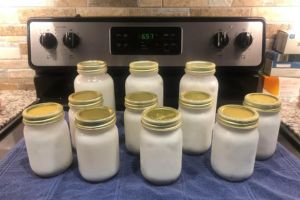 These types of fats do not need refrigeration but should still be stored away from direct sunlight or any other heat sources.
These types of fats do not need refrigeration but should still be stored away from direct sunlight or any other heat sources.
Both shortening and lard have a high melting point, making them susceptible to turning rancid quickly when exposed to too much heat for extended periods.
Place these items in a cool dark cabinet for maximum shelf life. They can also be frozen and simply thawed when you’re ready to use them.
Powdered Milk
Powdered milk should never be stored in its original box; instead, transfer it into a glass container or freezer bag before freezing/refrigerating it. The powder will absorb moisture from the air, causing clumps and a loss of flavor over time.
You may also want to consider putting the powder into a vacuum-sealed food grade mylar bag with an oxygen absorber or desiccant to extend its shelf life. Powdered milk can also be dry canned.
Prepackaged Fruits And Vegetables
Prepackaged fruits and vegetables should be stored in their own dedicated bins separate from other foods. Keep them at the bottom of the refrigerator to keep them cooler and prevent them from drying out.
You should store fruits and vegetables in perforated plastic bags or paper bags with holes punched into them to allow air circulation. This will help keep them from spoiling quickly.
Popcorn
 Popcorn is a great snack but it can easily go bad if not stored correctly.
Popcorn is a great snack but it can easily go bad if not stored correctly.
To maximize its shelf life, transfer popcorn into an airtight container before storing in a cool, dry place away from direct sunlight or moisture.
This will ensure that your popcorn stays crunchy for up to six months or more.
Dairy Products
Dairy products such as milk and cheese should always be stored in their original packaging until they’re ready to be used.
Once opened, transfer the dairy item into a new container, ideally wrapped in wax paper or parchment paper surrounded by foil. It should be clearly labeled with the date it was opened, so you know when it’s time to toss it out if it has not been consumed before then.
Understanding how best to store pantry items is essential knowledge for every home cook.
Not only will proper storage help preserve the taste and texture of many food staples, but it will also save you money by extending their shelf life significantly longer than recommended on the packaging label.
By investing a bit of extra effort into transferring certain foods into an airtight container when storing them at home, you can look forward to enjoying delicious meals with the freshest ingredients possible.
You may also like:
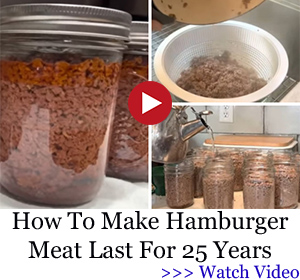 How To Charge Your Phone When There Is No Electricity
How To Charge Your Phone When There Is No Electricity
An Insanely Effective Way to Build a 5 Year Food Stockpile (Video)
How Much Does it Cost to Bulletproof Your Car?

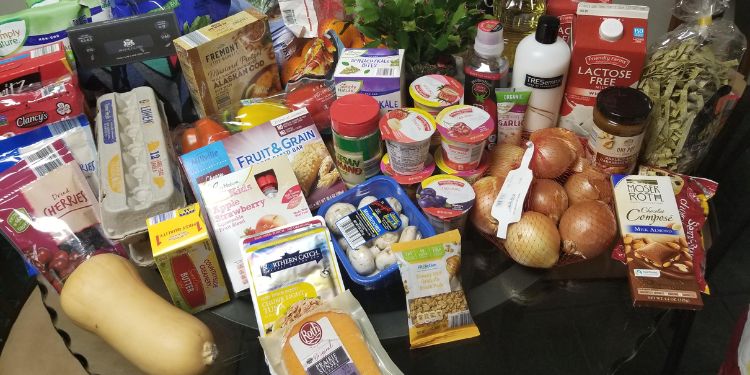







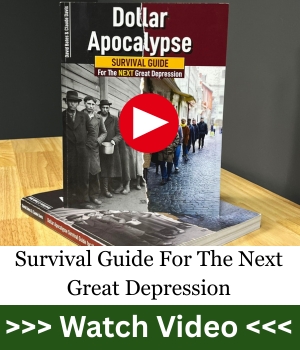



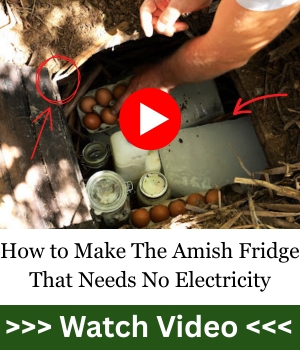








It’s too bad all those long term food supplies have an expiring date. They say most survival food is geared up to a 25 year storage term.
Has anyone that bought their survival food, properly stored over the 25 yrs. Have eaten their food with no stomach problems.
Is these 25 yr terms from the food manufactures based on trial scientific methods or part of marketing?
Can we really store an eat that food beyond the 25 predicted expiring date?
Is there an exchange or some type of renewal process. To extend the food to another 25 year period?
Actually yes, I worked for a company called Sam Andy Foods back in 1999 the owner made a killing selling to all the Y2K folks, he owned about 4 differnent companies he bought up in the 70’s/80’s dirt cheap. . . started during the 50’s for cold war/bunker survivial food, we had cases dated 1953, 45 years old that we opened and tested, granted the company stated they had a shelf life of 25+ years if kept in the correct conditions, most to all the food we tested and recipes per the cook book that came with it was still as fresh as when packaged. . .during my time there I was able to get a bunch for a stock pile to amount to one of the big extreme deluxe packages worth thousands at retail price and still have it (items canned in 1998/99) for emergency (and kept in correct conditions), as far as the other companies out there, I really dont know about, but for Sam Andy Foods, great stuff. . . side note one of the companies he owned was set up and targeted to “rich cliental” , the other three for middle class, all the food was packaged at the same place, same cans, same packaged food just, differnt labels
There was a History series were two guys would try to eat old canned, boxed food.
They did get some of the old C-Rats and MRE’s that were a few years old. That food was disgusting visually. Some cans leaked, moldy, they passed on eating them.
So a questions is these freeze dried foil packaged food like mountain house maybe good years later. But the canned food has issues in the process. The cans have seams and lids that can leak.
How do we know these current survival food manufactures have fixed the previous problems?
The common up to 25 years mark still has me wondering if it’s all true. We are purchasing long term food products based on those companies marketing the food. Why do they all say up to 25 years?
The C-Rats since probably before WWII was good to the Viet Nam War. But after that those products degraded. Don’t know if C-Rats had an expiration date on them. Since they were made for the troops in combat for short term emergency supply.
So do the current survival food companies base their long term foods on what the US military did in testing their products on troops?
It all could be comparing apple to oranges then comparing apples to apples thing.
There are a lot of suppliers, dealers out there but what company or organization does independent studies to make sure. Are the 25 year foods a myth to make money on the unsuspecting buyer?
Lisa Blake, I’m going to say the pull too lids on cans don’t have the same integrity as solid topped cans. Yes, there’s a seam in the solid topped cans which is its weakest point, and over the years, the composition of food cans may have changed. I remember heavier, steel cans used for most anything canned, which now is used a lot less. I still see it with canned salmon in the larger sized cans.
Read an interesting book by Glenn Beck, Dark Futures. This goes beyond our survival preps. The information got me thinking, what are we prepping for? Is it government overreach, AI or a United Nations takeover of America?
With all the food supply chains in chaotic uproar are we going to need a different paradigm for prepping?
If your stored up food is nearing date and you don’t trust it much past date… Simple, eat up the old while buying new. Rotate, rotate, rotate!
I’m old school. Parents were farm raised and since they were born in 1904 and 1907, they lived through two World Wars, and The Great Depression. We gardened and sun dried, salted, smoked, and pressure canned what we raised each year. We lived from harvest to harvest. Eat the older items first. I’ve never had to think in terms of prepping. I’ve always put away a bit more than we used so there was always plenty and extra. I even can milk and butter if I have extra. That gets it out of the fridge and adds years of safe shelf life.
I always watch for more canning or storage containers.
This year I’ve been adding new perennials to the garden … berries, grapes, fruit trees, hazelnuts, asparagus, medicinals, and flowers. Using tripple my usual garden space. A friend has been putting in drip irrigation for me.
Since I’m on a small Social Security income I get food from a community pantry most months. That brings powdered milk, instant potatoes, and extras that I often can. Most of the canned goods are set on a shelf, oldest at the front for easy rotation by date. Cereals go in glass jars or are shared with a friend raising grandchildren.
Only part of my food is even stored on my property. The rest elsewhere. All is used in rotation. I’m not worried about 25 year shelf life. It will be used up and replaced sooner than that.
Some things like sugar may get hard but never actually spoils. I aim to keep enough on hand for most of a years use for canning fruit and making jams, jellies, and a few deserts along.
Clergylady, I agree. I think many people overlook how handy some foods can be with a shelf life of several years. My bumper crop tomato harvest made it so I had tomatoes on the shelf for several years and could give that garden space over to something else to grow for a bit before putting tomatoes back in the rotation. I canned and dehydrated the excess after we are all we could fresh and shared with others.
I do have some long term foods, as I find them handy for camping, boating, or in an emergency (spouse is essential personnel and hates to cook, so those add boiling water to a pouch meal works well when he’s called out during the wee hours because of a power outage and will likely get hungry while he’s working). The long shelf life means I can get some and use them up over the next few decades as needed.
So far, while we’ve found them handy, we were glad they were not our only food source.
@Allknowing
We prepare to be sound in the knowledge that we will not be helplessly dependent on anything when the unthinkable happens, and It is sure to happen given how hard they are trying to make you fully dependent on the system for your survival while also controlling every aspect of your life. In any socialist system, shortages = death. If logistics of food stopped, I’m confident my family and the people I know of like mind will survive for at least 6-12 months without anything else, and we don’t have as much prep as some others but we do have the skills to go on, unlike most people. Corruption by dependency is pernicious and rampant, and as with most true evils only leads towards destruction.
Honey – indefinite storage time is you keep it in an airtight container.
Honey can be used to sweeten other foods, and as a wound treatment.
Being a Christian man, I’m expecting the rapture in the near future. Please no arguments. But things that I have stored are known to my small family and a couple of friends. If this happens and some are possibly left behind, it’s there for them to use if the authorities don’t get it first. What I have is money well spent for me because I live alone. God will have to take care of the rest. Good prepping everybody.
After seeing our food preps getting toward the expiring side, I’m worried.
The survival foods isn’t exactly cheap to buy. When we invest in the food there’s no guarantee it will last to the 25 year mark.
What scares me is Maxine Waters on capitol hill saying we all will be excepting the ESG program that is tied into the digital banking. If we buy food or other items the controllers do not want us buying . They can put a hold on our spending habits. We could starve. Is this the possible mark of the beast people have talked about for years?
AI will be the digital police being self authoritative, maybe deny access to basic necessities we need.
I hope our food storage supplies will last for awhile, kind of scared.
The gubmint already tracks a lot of what we do because we have credit card companies that simply comply with “requests” for info about certain people and what they buy. Another way is by using info from your “rewa4ds cards” from grocery stores gas stations etc. When you buy from companies that specialize in “prepping food” etc the gubmint either already has you on a list or can easily get it from any company by simply threatening them. Best way to stockpile food is buy using cash without an award card or one that doesn’t give your REAL info. Most canned goods last years and years past the date on the can. If it says “best by” that does NOT mean it’s bad it just means the company only guarantees freshness etc to that date. “Sell by” is usually aimed at the grocery store on things like milk cheese and other perishable. BTW milk is usually good at least 7 days after the date on the carton. Even things like mashed taters in a pouch that you just add hot water to can last year’s past the date on the package IF you repackage it correctly. Ramen can be stored for a long time if repackaged in an airtight container with desiccant and oxygen absorbers. Canned stuff is the easiest. Just buy an extra can of the soup you like or whatever it is and store in cool dry place. Lots cheaper than the fancy “Prepper food” too. I always remark the the cans so I can see the dates. By buying in quantities that LOOK like what a family would use in a week or 2 it generally won’t raise a red flag when they are looking for the guy who buys PALLETS of canned goods. Make sure you rotate your stuff so you use the oldest first and newest last. Buy stuff you like too. Why buy a case of artichokes when you hate them and never eat them? Look for sales too but don’t over buy. Better to start NOW than NEVER. Now that I have let out my secrets I expect some of the new armed IRS agents to show up to tax me for all that food because it has gone UP in value and I haven’t paid taxes on it.
You reminded me of the last time I was in Wallyworld. They carry an item I can’t get at other local places, so was there to get it when I saw a middle-aged woman and young man, likely her son, walk by. They had a grocery cart two-thirds full with emergency food (plainly advertised with bold, colorful lettering on the box), large bags of rice and beans, and a lot of camping items. Plus, matches, flashlights, oil lamps, oil, and sundries.
Many people here enjoy outdoor activities, and there are a few kids’ camps nearby, so seeing someone buying large quantities or camping supplies isn’t necessarily drawing attention. But these people seemed to have a PREPPER neon flashing sign.
I’ve seen people eye my cart, especially when I loaded up on cat food when we had a lot of cats. It was just easier buying it once a month. After a while, I got to know the cashiers who had cats and would ask me how my kitties were.
I agree, though paying with plastic or ordering online leaves an easy trail.
Lisa, its better to learn how to make and preserve those foods yourself instead of buying them. For food, the expiration dates are guidelines by the manufacturer, there is no set date by which food goes bad; Its meant to drive additional sales, though the best by date can indicate when it will spoil or otherwise become unpalatable in terms of flavor, visual, or otherwise. Manufacturers often seek to make you dependent on them in various ways, and some foods may still be edible despite looking unpalatable. In many cases, its hard to determine safety without being able to test the food for dangerous contaminants; chemically/biologically. Visual is not a guarantee, and one of the most dangerous things about canning is a odorless tasteless bacteria that grows in anaerobic enviroments and doesn’t die until heated above a certain threshold (which requires a pressure cooker to achieve). You learn about this with canning.
As for the ESG items, and its DEI push/social emotional learning offshoots. If you’ve read history about Mao’s reign, you’d see almost identical elements being pushed by these organizations. We all know what happened with Mao; and the huge amount of people who died of starvation in his first, and second revolution. The psychology of totalism by Robert Lifton is a good historical account about the struggle session, and its construct to thought reform people.
The only aspect of AI that is dangerous is the interference of the economic cycle. It stalls what would otherwise be an engine between workers and producers. As for anything else, it fails in any way where there are more than one possible outcomes given the same inputs. Computers require determinism (only a single outcome). It breaks when same initial inputs have multiple outcomes. That includes situations where people can lie. Its a fundamental limitation in all computers.
The author has it all wrong on rice. If you store rice in the correct manner, it will also last for 25 to 30 years, same as dry beans. Also, if you freeze dry milk and eggs, there’s no need to refrigerate or freeze them. You freeze dry them and store them in mylar with oxygen absorbers, and they will last for years as well.
I too bought a bunch of 25 year survival food kit back in 2015, I was still working then, now retired. Don’t have the money to go buying new survival food kits to rotate out the old stock now. I would like to extend my current food stock a few more years, then buying new stock.
Has anyone else come to their realization of having to throw out out the food items going past the 25 year date? What have you done to extend your survival food, thanks?
Our economy before the Covid Reset, we were able to restock food supplies. Now with digital currency taking over our paper dollar. We might not be able to buy new survival food. I am reading the Dark Future book too, it’s crazy if all that stuff happens soon.
That is what I’m looking at and maybe the same for others in deciding what to do.
I never buy the expensive pre packed “survival stuff”. Just like I said above most stuff off the shelf can be made to last year’s longer than the dates on the package especially canned stuff. Buy what you normally buy along with an extra can or 2. Then USE what you buy and rotate it out. Newest in the back oldest towards the front then use the oldest first. Very easy to both use and stockpile that way without bringing attention to yourself. If you open a can and it doesn’t smell right that’s usually the sign it’s gone bad unless it’s something that smells bad normally like Brussel sprouts. Just toss it and you are only out that can. They don’t all go bad at the same time. Exceptions are anything acidic like tomatoes, citrus etc. They may only be good a few yrs beyond exp date. Use the smell test. Use your “stock” as part of your normal “pantry” and draw from it just like you would from a small kitchen pantry and don’t forget to rotate. Do it as soon as you get home from shopping and it will be easier. You would be surprised how quickly you can build up a stockpile one can at a time.
Coffee storage. Try unroasted (green) coffee. It can be stored in a vacuum sealed bag for a very long time. I had some that I had sealed and it got put into storage by mistake. I found it eight years later. After roasting and grinding it made very good coffee. Coffee does not start to lose its flavor until after it is roasted. Roasting can be done in a skillet (no synthetic coating i.e. Teflon, etc.) until it is the desired color. It can be then ground to the fineness desired for the coffee pot used. Everyone has a different taste in coffee so the desired color and fineness of the grind will vary between persons.
while a kid 40 + years ago , I and my brother bought survival food , cans, bottles, cases of large cans, all kinds for say a year
well , I got married , had kids, move on , into about 30 different houses over time , kept the notion of i will need the food , then after my military experience finally ended and reality sank in , settled down , found a job , and threw out all the food i carried around for 40 years
The when Y2K came and every freek out there believed it was the end , we stored more , ended up giving it away to homeless shelters
moral of the story
YOU must be in stable long term place for prepping to work
and have a vision , purpose, goal
otherwise your just storing up for nothing
Rotate, Use up the old , eat up the old , dont try to store up for the next life , when it might not come .
Jesus Said the end will come like a thief in the night and not to worry about anything , just Trust and Obey , Pray , seek after what will last eternity , not temperary
everything will perish , but God will come for his bride and you want to be the bride
so the food is for your work in your community , not selfish lifetime storage
purpose
Must have a Plan
Must have common sense
Food has to be preserved right or it taste really bad and ransit , not edible after this takes place
I can only assume the author of this doesn’t live in the U.S. as almost half of this was dead wrong.
Valerama, which half, in your opinion, is dead wrong? please be specific! your comment is meaningless otherwise.